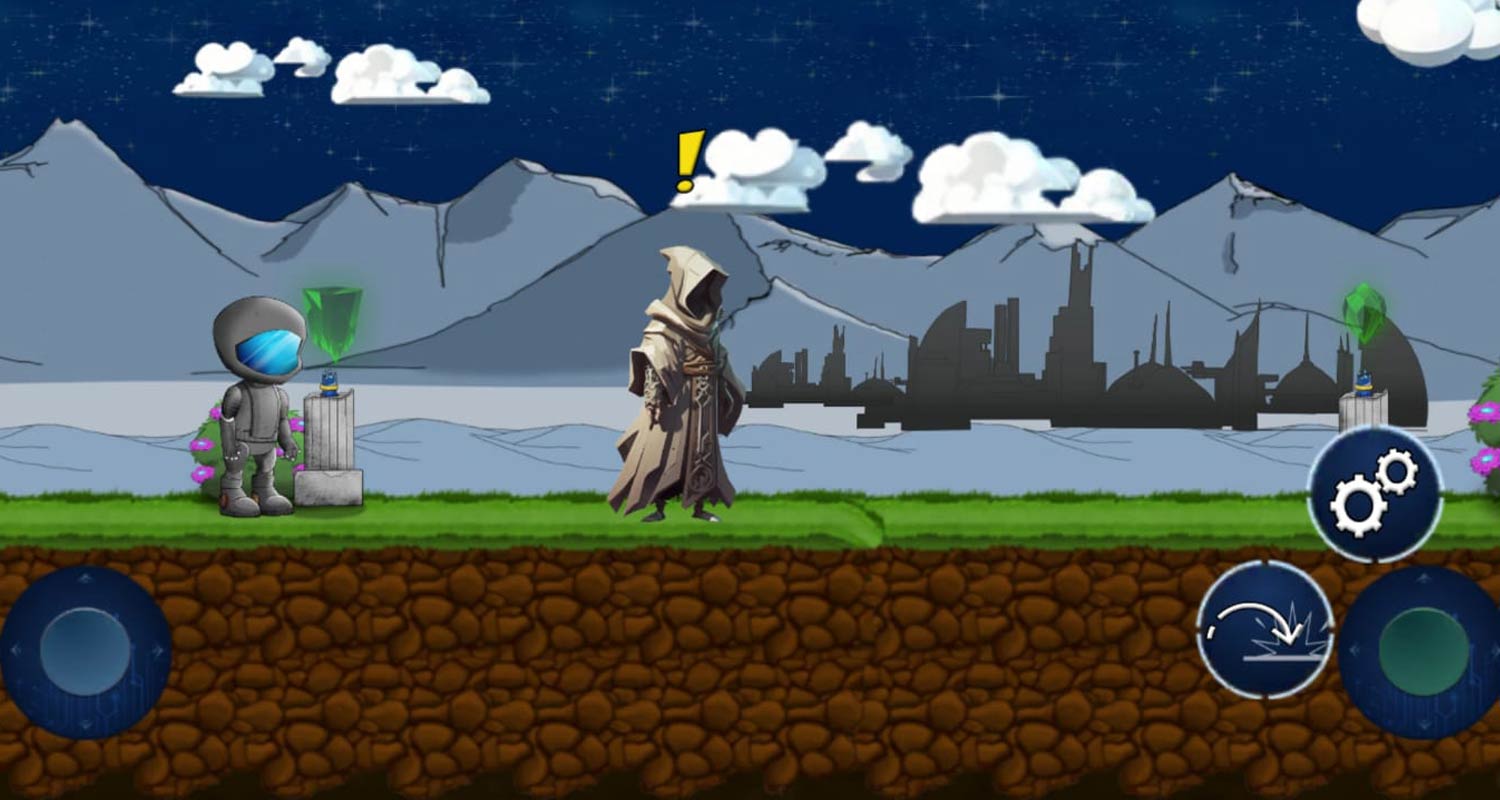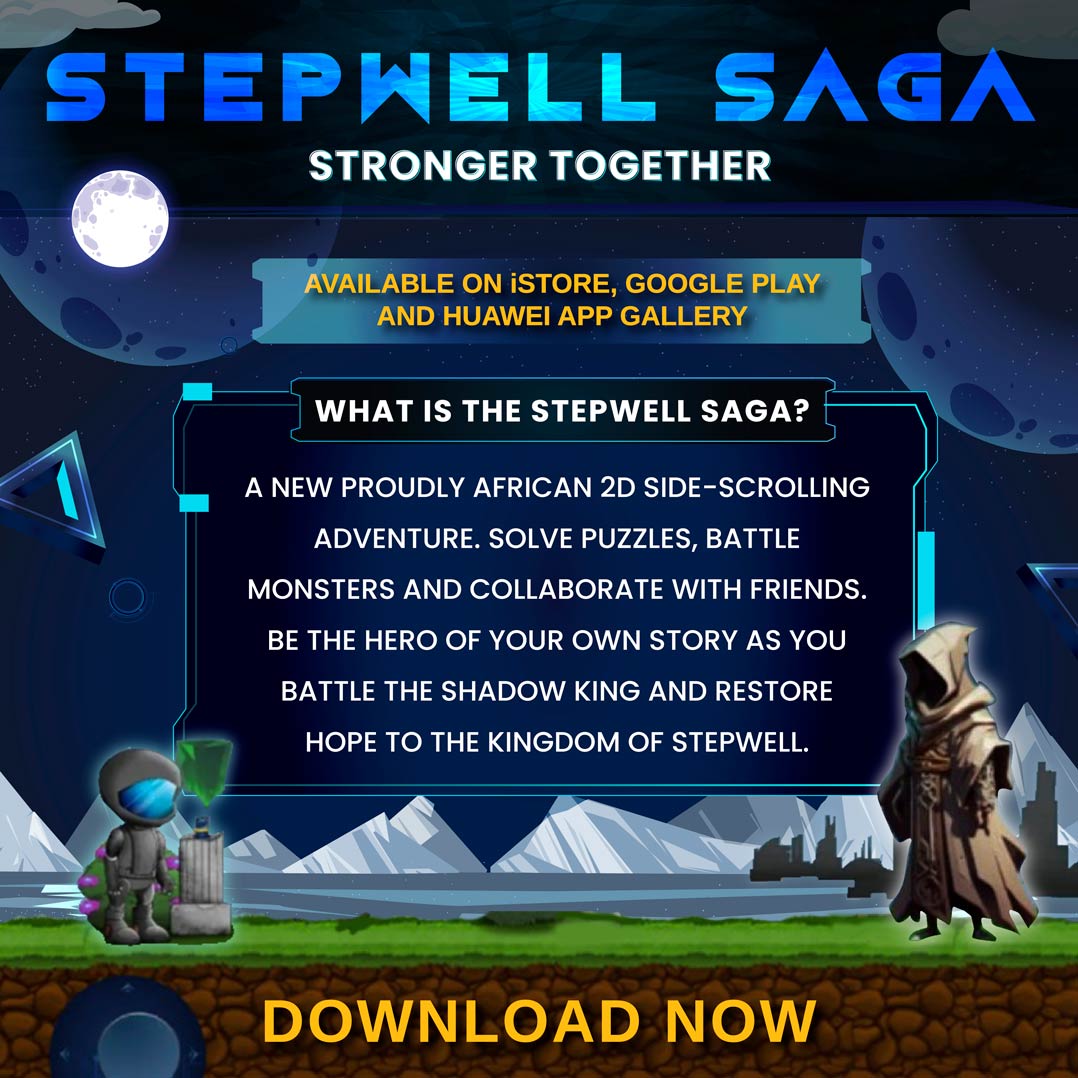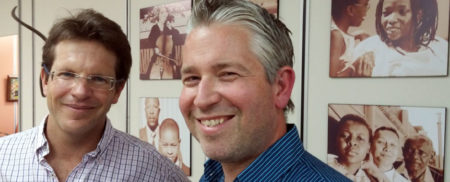 Mental health among South African youngsters is a serious concern. As part of a wider project to improve mental health policy and services in South Africa generally, the Foundation for Professional Development (FPD) has launched an innovative attempt to reach youth where they are at – playing games on their phones.
Mental health among South African youngsters is a serious concern. As part of a wider project to improve mental health policy and services in South Africa generally, the Foundation for Professional Development (FPD) has launched an innovative attempt to reach youth where they are at – playing games on their phones.
FPD secured a pioneering grant from Grand Challenges Canada (funded by the government of Canada) to develop Africa’s first serious game dedicated to mental health, entitled The StepWell Saga – Stronger Together.
Download The StepWell Saga for Android, Huawei devices or iPhone
The StepWell Saga unfolds as an entertaining 2D side-scrolling adventure. It is low on data for downloading, does not take up a lot of space on a phone, and needs even less data to play. In the game, the player must solve puzzles, battle monsters and collaborate with friends to restore light to the kingdom of Stepwell that has been in darkness since the evil Shadow King and his forces engulfed the Earth.
As per edutainment theory, the game is not explicit about its mental health messages. These come through in the character dialogue and gameplay activities that teach skills like problem-solving, strategy and teamwork, and develop mental resilience — while also being fun to do. It challenges the player to think critically and promotes the importance of relationships in facing life’s challenges.
“The state of youth mental health in the country is devastating,” says Jean Slabbert, who has managed the development of the game. “Poverty, inequality, youth unemployment, adverse childhood events… the list of challenges that South African youth face just goes on and on. We need innovative ways to not only reach our young people, but also equip them with the skills they need to manage life’s difficulties and provide them with hope and encouragement.”
During the development of the game, testing was done on the concept and script with experts in mental health, as well as a group of young people recruited from communities in and around the Pretoria area.
Mental healthy literacy
“I loved the idea from the start and was impressed by how the FPD team was able to seemingly introduce content to educate players on well-being and mental health issues as well as therapeutic language using both cognitive behavioural and interpersonal therapies (CBT and IPT). We worked together to introduce CBT and IPT elements with language matching the age of those who would play – avoiding long words and clinical terms,” said Milton Wainberg, professor of clinical psychiatry at Columbia University/New York State Psychiatric Institute. Wainberg is a consultant to FPD on its mental health projects.
“CBT is used to help players change unhelpful thinking patterns and to use problem-solving to address the challenges within the game, modelling skills they could use in their own lives. We used IPT, which focuses on improving interpersonal relationships and functioning, so players would make ‘good’ choices of whom to befriend or rely upon within the game, again, as a skill to use outside the game,” Wainberg said.
“Importantly, resilience guided the script development; players attain skill while being engaged in the game and focusing on completing the game (winning).”
The game had seen 385 registrations by 19 June 2024 and received 4- and 5-star reviews on the Google Play store (apart from one 1-star review that reported on a bug that has subsequently been fixed). Its also available on Huawei AppGallery and the Apple App Store. One of the quotes from the Play store reads: “This game is good. The storyline is interesting. I recommend it for you and your kids.”
…article continues below…
 Jean Slabbert said: “We know we have a strong script, what’s left now is to test whether this game is an effective way to not only educate youth on mental health literacy, but also impart mental health resilience techniques in a way that is practically applicable.
Jean Slabbert said: “We know we have a strong script, what’s left now is to test whether this game is an effective way to not only educate youth on mental health literacy, but also impart mental health resilience techniques in a way that is practically applicable.
“We have recruited 100 young people (18-24 years) to take part in a formal evaluation where we make use of the MeMind application to assess where on the mental health continuum participants are at any given time. MeMind poses between two and four mental health screening questions a day to conduct its continuous analysis. The evaluated participants are randomly assigned to either the intervention or control groups. Those in the intervention group have access to StepWell and MeMind, while the control group has access to MeMind only. We hope to see a meaningful correlation between game uptake and participants’ positions on the mental health continuum, compared to those in the control group.
“We’d like to encourage as many people as possible to download and play the game – it’s available free on Android, Huawei and Apple devices. Who says learning can’t be fun?” Slabbert said.
Download The StepWell Saga for Android, Huawei devices or iPhone.
- This promoted content was paid for by the party concerned


